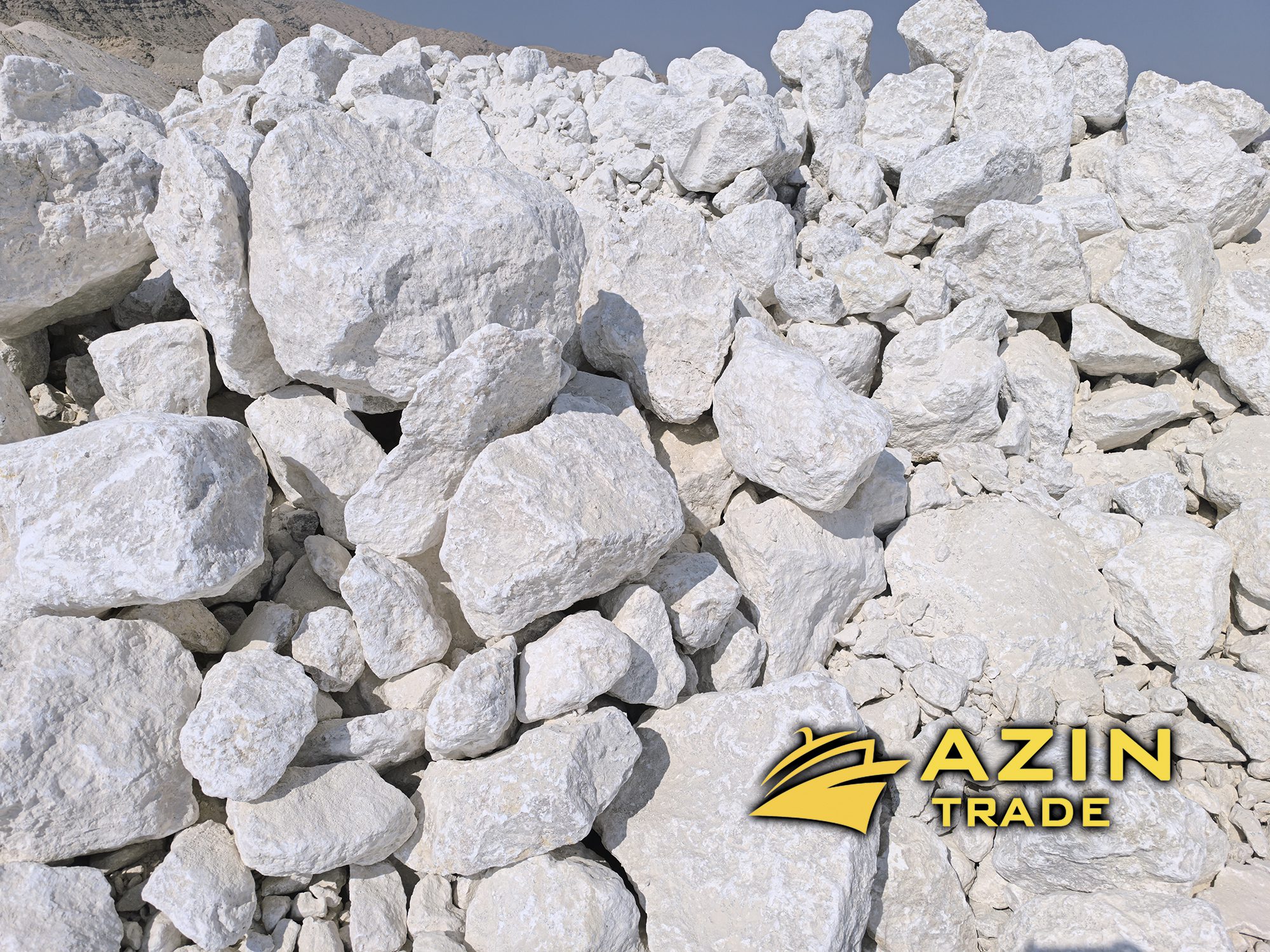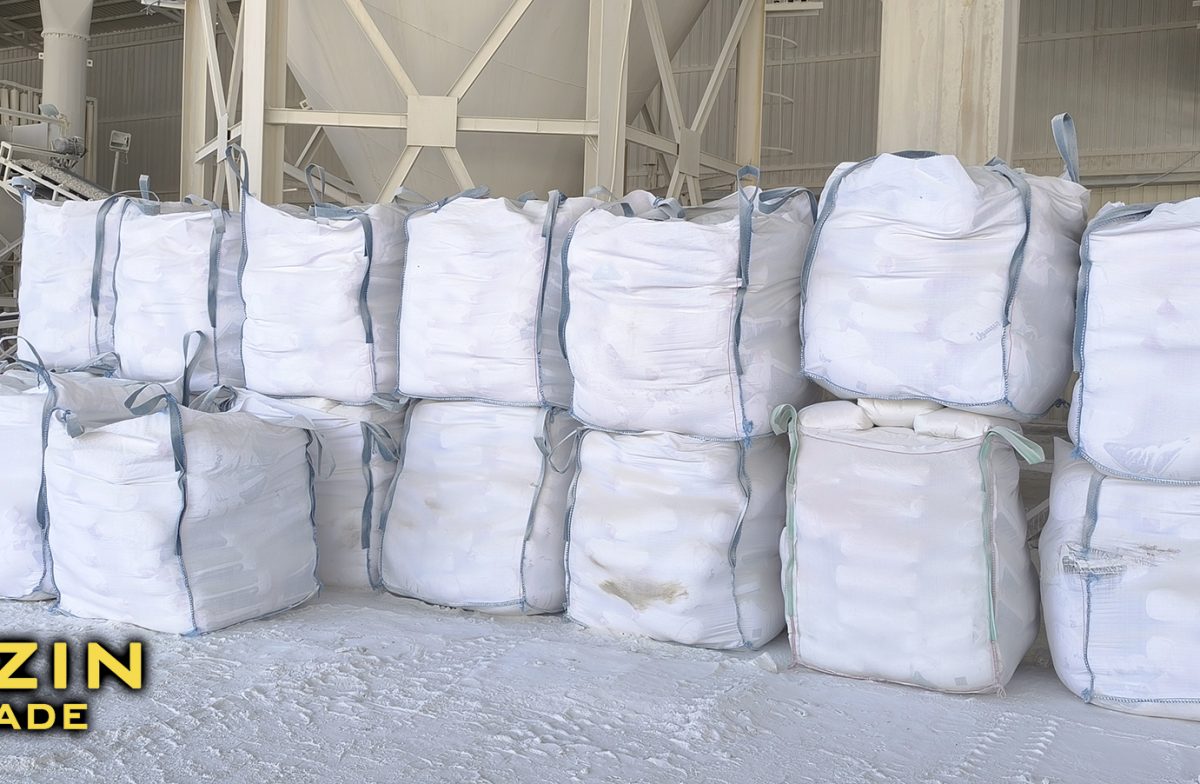The Growing Demand for Gypsum and Its Varied Applications in Global Industries
Gypsum is one of the most versatile and widely used materials in the world, playing a crucial role in various industries, especially in construction, agriculture, and manufacturing. As a naturally occurring mineral, gypsum is primarily used to produce plaster, drywall, and a range of other products essential for building and improving the infrastructure of homes, offices, and industrial spaces. In recent years, gypsum has also found its place in many agricultural applications, thanks to its unique properties that support soil health and crop production. This article will explore the types of gypsum produced in Iran, its diverse applications, and how its global demand continues to rise, particularly in export markets.
The Types of Gypsum Produced in Iran
Iran, a country rich in natural resources, is one of the world's leading producers of gypsum. The country's gypsum reserves are abundant, making it a key player in the global gypsum market. The types of gypsum produced in Iran vary based on the processing techniques and the intended use of the final product. The main types of gypsum produced include:
- Natural Gypsum: This is the most common form, extracted from quarries and processed to produce various building materials. Natural gypsum is often used in the manufacture of plasterboard and cement, as well as in agriculture to improve soil structure.
- Plaster of Paris: Produced by heating gypsum to remove its water content, plaster of Paris is a quick-setting form of gypsum commonly used for creating molds, casts, and sculptural applications. It is also a vital material in the construction of ornamental details in buildings.
- Gypsum Board (Drywall): One of the most well-known products derived from gypsum, drywall is used extensively in residential and commercial construction. Gypsum board is made by sandwiching a layer of gypsum between two layers of paper or fiberglass, creating a sturdy, fire-resistant material that can be easily shaped for walls and ceilings.
- Gypsum Powder: This finely ground form of gypsum is used for a variety of purposes, including as an ingredient in plaster mixtures, as well as in agricultural applications where it is used to enhance soil fertility.
- Hydrated Gypsum: Another variation of the mineral, this form of gypsum contains water molecules that are chemically bonded to the material. It is primarily used in the production of cement and for soil stabilization.
Each of these types of gypsum is produced with specific applications in mind, and the processing techniques vary depending on the intended use. For instance, while the production of drywall requires highly refined gypsum, agricultural gypsum may undergo minimal processing, with an emphasis on maintaining its mineral properties to benefit soil health.

Global Applications of Gypsum
Gypsum's ability to be easily processed and adapted for various industries makes it an essential material across many sectors. Below are some of the most common applications of gypsum in industries worldwide:
1. Construction and Building Materials
In the construction industry, gypsum is widely used for making plaster, drywall, and other materials used in building walls and ceilings. Drywall, in particular, is one of the most common building materials for residential and commercial structures due to its ease of installation, affordability, and excellent fire-resistant properties. In fact, drywall makes up a large portion of modern buildings’ interior walls and ceilings. Gypsum plaster is also used for finishing walls and creating smooth, durable surfaces.
The lightweight, fire-resistant, and acoustic properties of gypsum products make them ideal for use in construction. In particular, they contribute to energy-efficient, sustainable building practices, which have seen increased demand in modern architecture.
2. Agriculture
Gypsum is also an essential material in the agriculture industry. It is used to amend soil by improving its structure, drainage, and aeration. This natural mineral helps prevent the overcompaction of soil, ensuring better water retention and allowing crops to grow more efficiently. Gypsum is often used on farmland to balance the calcium-to-sodium ratio in soil, which promotes healthier plant growth. Additionally, it helps reduce soil salinity, especially in arid regions, making it an effective tool for improving crop yields in areas where other soil amendments might fail.
In the agricultural industry, gypsum's role as a natural and environmentally friendly soil conditioner is becoming increasingly recognized. It is widely used in regions with poor soil conditions, where it helps enhance agricultural productivity and sustainability.
3. Cement Production
Gypsum plays a critical role in the cement production process. It is used as a set-retarding agent in cement, helping to control the rate at which cement hardens after it is mixed with water. By adding gypsum to cement, manufacturers can extend the workability time, allowing for smoother application and stronger, more durable concrete. This application is crucial in the construction of infrastructure projects, including roads, bridges, and high-rise buildings.
4. Industrial Applications
Gypsum is also used in a variety of industrial applications, such as in the production of plasterboard and as a key ingredient in various chemical processes. It is used in manufacturing products like fertilizers, detergents, and even certain types of glass. The versatile nature of gypsum allows it to be a valuable commodity across many sectors, extending its global demand.
5. Environmental Benefits
Gypsum has a positive environmental impact, especially in the areas of waste management and sustainability. It can be used to treat wastewater by removing impurities and improving water quality. Gypsum also plays a significant role in mitigating environmental pollutants, particularly in agricultural runoff. Its role in environmental conservation continues to grow as the world increasingly focuses on eco-friendly building materials and sustainable agricultural practices.
The Export Market for Gypsum
Iran’s gypsum industry has not only seen significant domestic demand but also enjoys a thriving export market. The country exports a large quantity of gypsum and its by-products to many countries, particularly in the Middle East and Central Asia. The robust demand for gypsum in construction, agriculture, and industrial applications has contributed to its growing export value, with Iran being one of the top exporters in the global market.
Countries such as Iraq, Kuwait, Afghanistan, and Pakistan are major importers of Iranian gypsum, benefiting from the material’s high quality and cost-effectiveness. The growing infrastructure projects in these regions, combined with the increasing agricultural needs of emerging markets, create a favorable environment for Iranian gypsum producers like Azintrade, one of the country's leading exporters.
Azintrade, as a prominent producer and exporter of gypsum, plays a pivotal role in meeting the global demand for this mineral. By maintaining high production standards and adapting to the specific requirements of international markets, Azintrade helps ensure that gypsum continues to be an essential material in global construction and agriculture.
Conclusion
As one of the most versatile and widely used materials, gypsum plays a critical role in construction, agriculture, and various industrial applications. The growing demand for gypsum in these industries has made it a key commodity in global markets. Countries like Iran, with their rich gypsum reserves, continue to be major players in the export market, with companies such as Azintrade leading the way in production and international trade. With increasing global infrastructure development and agricultural needs, the demand for gypsum is expected to continue rising in the coming years, highlighting its importance as a sustainable and valuable resource.




